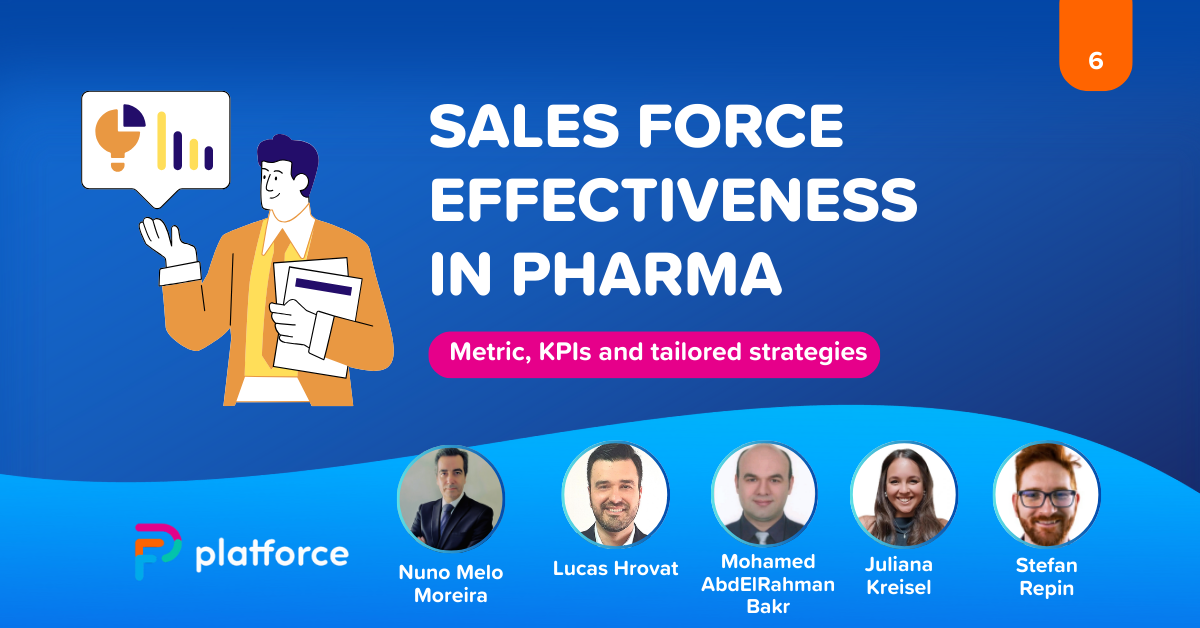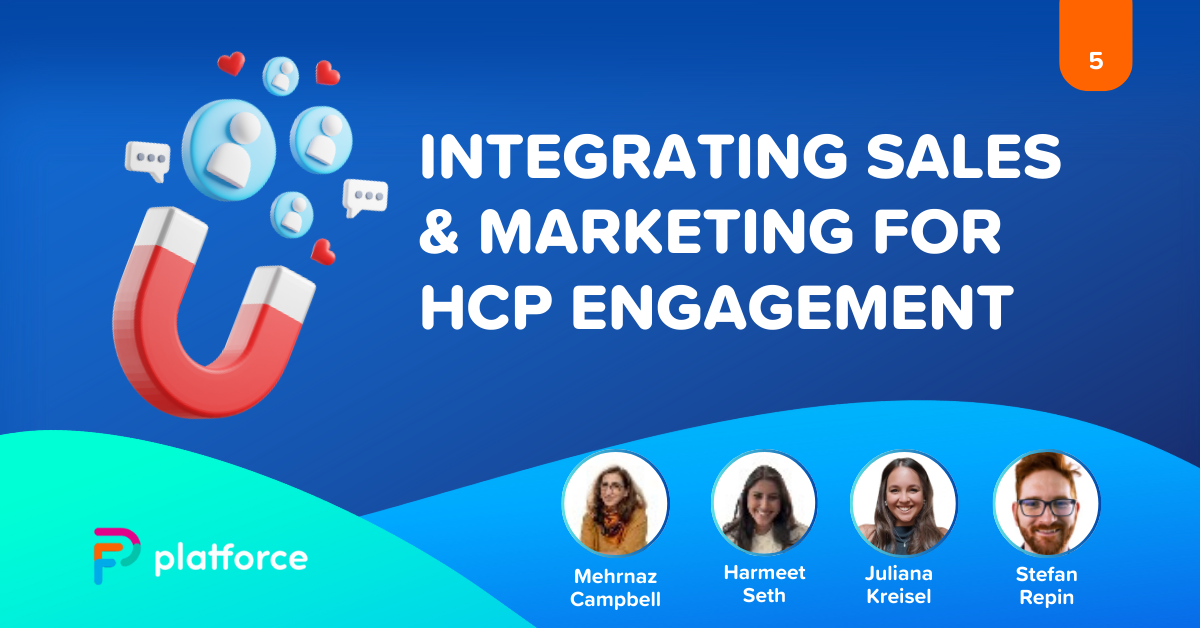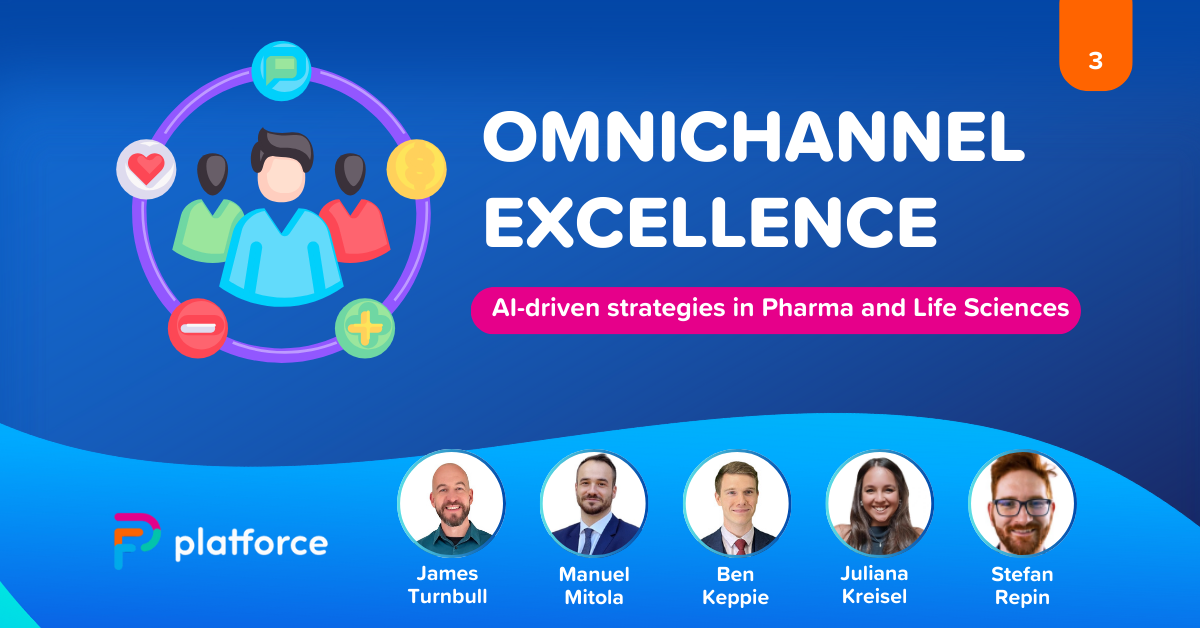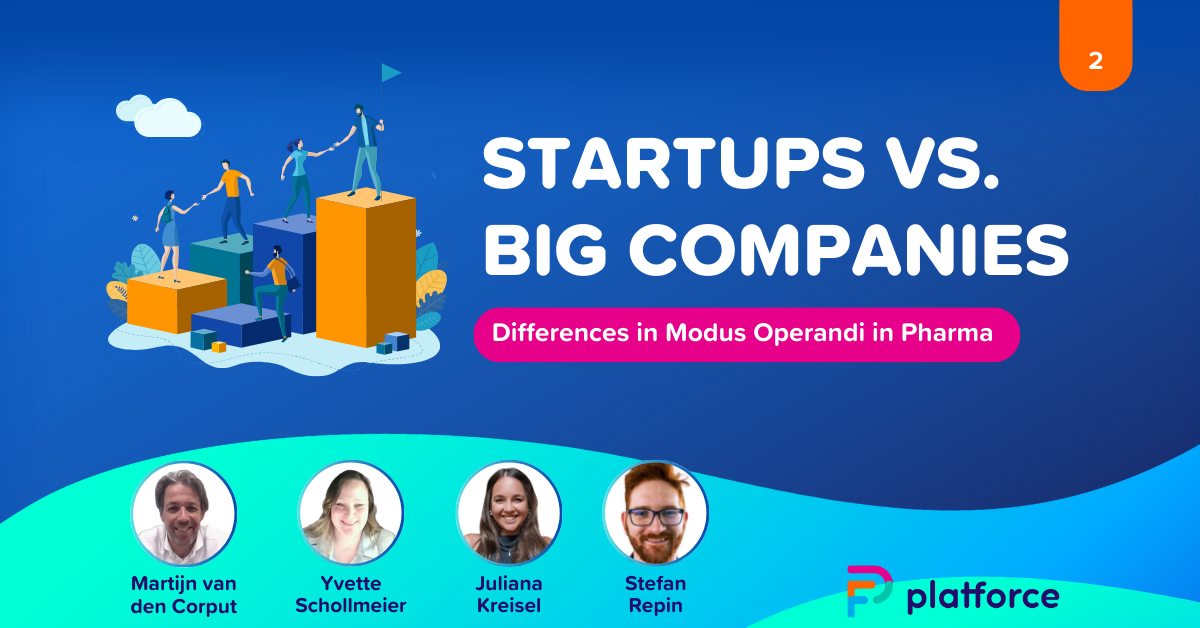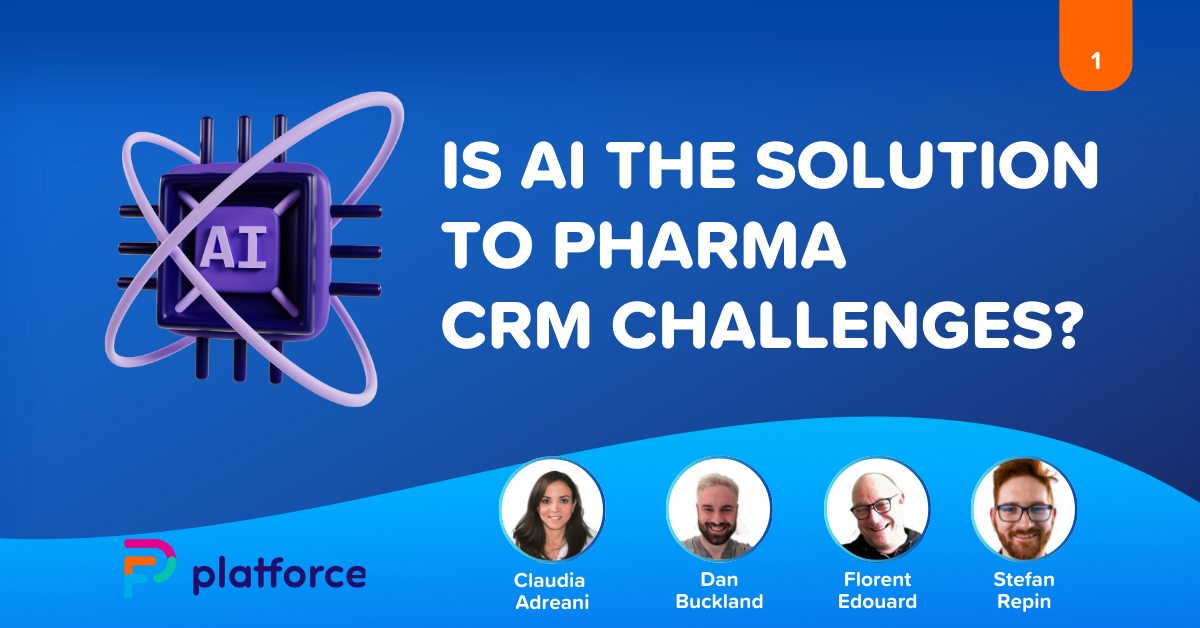Pharma sales performance refers to measuring and evaluating the effectiveness and efficiency of pharmaceutical sales teams, representatives, or organisations in achieving their sales goals, targets, and objectives.
If you’ve witnessed the pharma business landscape after the pandemic, you can attest to the rigorously competitive nature of this landscape. Amongst several factors that make for a win, the effectiveness of your business’s sales team plays a critical role in driving revenue growth and market share.
With the United States pharma market alone generating a revenue of over $670 billion, it’s okay to say every strategic effort invested into your sales team is worth it. Interestingly, the pharma market doesn’t tow a straight path but evolves. Customer needs change, and it’s only logical that your sales teams adapt and innovate to stay ahead in these times.
To catch a holistic view of current trends and needs in pharma sales, we discussed with Lucas Hrovat, Senior Manager for Commercial Execution at Abbott (LATAM & Canada), and Nuno Melo Moreira, Executive Managing Consultant & VP of strategy sales, NHS.
Through their expert insights and real-world examples, we delve into successful sales strategies and campaigns, metrics for assessing sales force effectiveness, adapting sales strategies to diverse market needs, overcoming unique sales challenges, and effective technologies and tools for boosting sales performance. Let’s jump in! Here are 5 ways to achieve better results.
1. Successful Pharma sales performance requires strategies and campaigns
Every business needs a proactive sales strategy, and pharma businesses aren’t an exception. While being conclusive and decisive in your approach is important, the winning sales strategies are the ones which from design are built to show good flexibility about your team’s advancements, and which can easily adapt to changing external conditions, such as market fluctuations or political decisions.
Mr Nuno Melo Moreira shared his experience leading a successful sales strategy during his company’s European rebranding process, where they transformed from Merck Generics to the American Mylan Group. He emphasized that successful sales strategies involve understanding customer needs, addressing prices early, implementing high-converting sales proposals, driving decision-making with mutual action plans, and understanding stakeholders’ concerns.
This can significantly shorten the sales cycle and improve sales performance. In his words, “We approach prices at the beginning of the sales process. Unqualified opportunities can lengthen the cycle, so being transparent about costs helps filter out unsuitable prospects.”
2. Metrics for Assessing Pharma Sales Performance through Sales Force Effectiveness
Pharma sales performance can be assessed through quantifiable metrics, which are highly dependant on the company’s specific business model. From a sales force effectiveness perspective, pharma sales performance refers to the efficiency and productivity of pharmaceutical sales teams in achieving their sales objectives, building strong customer relationships, and driving business growth.
These teams, often referred to as “field forces” or “sales reps,” are deployed across various regions and territories to promote products, engage with healthcare professionals, and gather insights from the market.
To maximize sales efforts, It’s essential to identify and track your business’s key metrics with Closed-loop marketing (CLM) tools like Platforce. Effectiveness in Pharma sales today means you can analyze your sales process and know how much revenue and customer satisfaction it brings to your company.
For Mr Moreira, metrics such as reach and frequency, total prescriptions (TRx), new to the brand (NBRx), sales quota achievement, and time to initiation are of high priority. He also highlights manager evaluation, interaction skills, and emotional intelligence (EI) as vital metrics to assess pharma sales performance through sales force effectiveness in the pharmaceutical sector.
He emphasizes adapting these metrics to each company’s unique context. According to Nuno, “Understanding customers’ emotions and needs generates trust. Empathetic representatives adapt their approach, which leads to stronger relationships and successful sales.”
3. Diversify Sales Strategies to Reflect Market Needs
Every market has unique opportunities and challenges, especially in the ever-dynamic Pharma and life-science industries. One of the keys to success for a multinational pharma company could mean understanding how to tailor sales strategies to meet the unique needs of different markets and customer segments.
For some, it could come as a surprise to hear that the pharma and health industry spent up to $17.8 billion on digital advertising in 2023. With so many funds invested in sales, marketing, and advertising, maximizing data analytics and closed-loop marketing (CLM) tools like Platforce isn’t just a good strategy but a necessity. Why? Because
We asked Mr Lucas Hrovat how he’s adapted sales strategies to meet diverse market needs across LATAM and Canada. He stressed the need to align sales strategy with corporate strategy, focusing on the product mix, prioritizing, and benchmarking incentives and compensation sales reps..
He also highlighted the importance of talent retention and aligning performance KPIs with desired behaviors. In his words, “Benchmarking incentives and compensation with market standards can ensure competitiveness. It is crucial to focus on the product mix. Emphasizing products with higher gross margins can enhance profitability.”
4. Overcoming Unique Sales Challenges in Pharma and Life Sciences
It’ll be presumptuous to venture into the pharma business and not expect daunting challenges that may sometimes seem insurmountable. A few of these challenges, as revealed by Mr. Lucas, are onboarding and continuous learning, work-life balance, and meeting sales targets. The mere passage of time is not on your side, as a business manager. But your main advantage has a lot to do with your proactivity in facing such challenges.
“The pressure of work culture can compromise balance. It’s crucial to separate “work time” from “personal time.” Enhancing productivity during work hours is key to relaxing properly afterwards,” says Lucas Hrovat.
In his view, overcoming these challenges requires well-structured training programs, setting clear goals, and leveraging CRM technology. He also specified that effective sales leaders prioritize talent retention, continuous learning, and work-life balance to drive sales performance.
5. Effective Technologies and Tools for Field Force Teams
Unlike others, the pharma and life science industries have been slow to adopt cutting-edge technologies for marketing purposes due to reasons such as harsh regulatory landscapes which require carefulness regarding compliance.
Nonetheless, it’s unarguably true that tech is here to stay, hence, every pharma business leader should be forward-thinking and make prompt decisions about integrating tech to boost sales performance, while not breaking the traditional “rules of the game” specific to pharma and life science products.
“Regarding key tools, I prefer CRM combined with analysis tools. The most motivating thing is to have a clear goal and KPIs to measure your progress,” says Lucas Hrovat.
At Platforce, we strive to give you a holistic and catered blend of data analysis tools, seamlessly integrated into our CRM platform. Interestingly, you also don’t have to worry about saving important metrics when your field force teams run out of internet – our product works offline and can synchronise data as soon as Internet access is restored, making updates accessible across and within teams.
How to enhance pharma sales in just a few steps
In conclusion, pharma sales performance has everything to do with your salesforce effectiveness. But, enhancing sales team performance and accelerating sales cycles in pharma and life sciences requires a multifaceted approach that carefully analyzes your specific business needs and team dynamics- no one-size-fits-all.
By implementing successful sales force effectiveness strategies and analytics, such as tracking key metrics, adapting to diverse market needs, overcoming unique challenges, and leveraging effective technologies and tools, your sales teams will stay ahead of the competition and drive business growth.
As the industry continues to evolve, your sales teams must remain agile, innovative, and customer-focused to succeed. By embracing the five key strategies mentioned above, your sales teams will optimize performance, accelerate sales cycles, and ultimately improve communications with Healthcare Professionals (HCPs) and other stakeholders. Learn more about the art of detailing to doctors and building strong pharmaceutical relationships.
Platforce is a cutting-edge digital solution for the pharma and life science industries, bringing to the table rich data management experience which your sales team needs to effectively navigate the complex pharma market in 2024. Take the bold step with us today and see an unprecedented transformation in your business!
Get a free personalized salesforce effectiveness analysis audit from our experts to develop a step-by-step plan to review your current opportunities and identify areas for improvement.
The author of this blog post is Japheth, a seasoned B2B SaaS writer who drives growth and engagement for innovative software companies through compelling stories and content marketing solutions. When he isn’t writing, he’s reading a good book or chilling out with friends.

